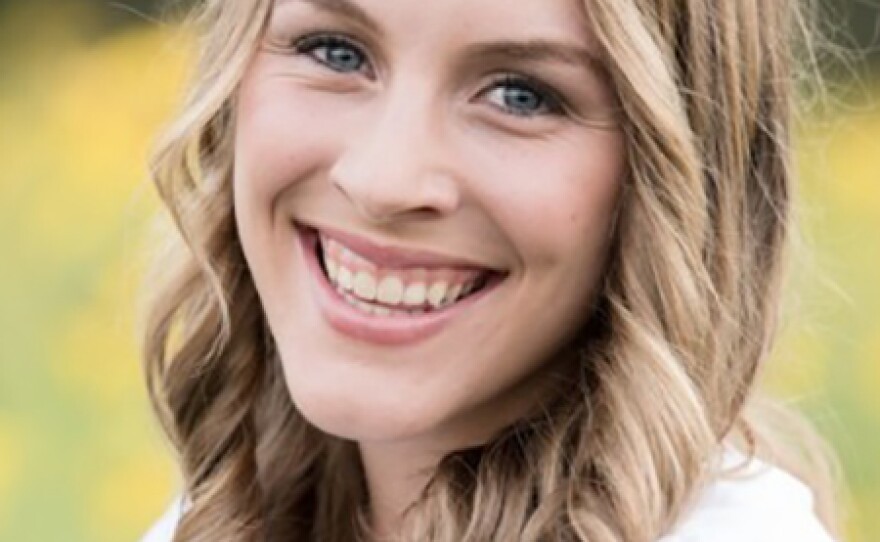As Columbia public schools returned to in-person schooling this fall, elementary schoolers are getting used to a new way of life. It’s been a year and a half since any of them have experienced a full “normal” school year. For kindergarten through second graders, none of them have had a full year unaffected by COVID-19 safety restrictions.
Many students have not learned the social skills that come with in-person learning or are having to re-adjust.
There is little to no data showing the exact impact of COVID-19 has had on their social and emotional competency. Recent surveys show that more than 80% of educators believe social-emotional learning has become more important since the pandemic. KBIA sat down with Jessica Blake to talk about this learning gap. Blake is a K-12 education reporter for the Columbia Missourian. She’s been talking to the administration and educators of Blue Ridge Elementary School about this and is here to tell us more about it.
TRANSCRIPT:
BLAKE: The story idea came up from being around educators, I have an educator in my family. As a reporter, I'm always kind of staying in tune with the beat and what's going on.
BLAKE: And just hearing concerns generally from teachers, administrators, parents, and school psychologists just all around as well as reading some other articles from more of a national level starting to see concerns not only about academic delays that might be happening for our students post COVID, knowing that virtual learning did impact what their education looks like in schools, but also social and emotional skills.
BLAKE: Because when you don't have the peer to peer interaction of your typical school day, that's so much of kids growing and developing is interacting with people their own age and learning to solve problems and get through conflicts and work together
What was the overall theme and concern from educators?
BLAKE: We've focused so much on academics, we also need to look at some of this behavioral stuff that wasn't necessarily as expected or wasn't even just on the forefront of people's minds. And overall, we are seeing some of these delays. And but the overall theme that I heard, too, was, it's not the kids fault. And a lot of times people jump to the conclusion that kids act out or have behavioral or social or emotional issues, because it's out of spite, that they want to be causing problems. But in a lot of these instances, it's just that the kids haven't had the opportunity to learn it yet.
RT: What kind of extra support have local schools been offering to students having trouble with the adjustment?
BLAKE: Like I walked into a kindergarten classroom, and they're sitting in their learning, what does respectful listening looking look like. And one of the things that they did was they would cut their hands around their eyes, like binoculars, and look at the teacher and say, eyes watching. And that's a sign that they're they are explicitly learning that keeping eye contact with somebody, when listening to them is a way of showing respect, or keeping a bubble in your mouth, keeping your mouth closed is a well, somebody else's talking is a way to show respect.
BLAKE: And then you flip over to a fifth grade classroom that I got to observe as well. And you're seeing students talk about what is empathy? And what is respect? How do we break down these complex emotional ideas? How do we show someone empathy when they're in a moment of embarrassment or anger and having those slightly more complex conversations for a higher level of student than, say, the motion-based learning of respectful listening in a kindergarten classroom. But that's what the Second step is, is an explicit reference to these lessons that students are needing to learn.
And so incorporating that daily, at the start of the school year and weekly as the school year goes on, through a curriculum that's set up that scaffolded, to have the same core lesson concepts, but from K through fifth grade, at schools across the district. And so now as they're back in person, all elementary schools are continuing to use the second step and to use those lessons as a response to help students along.
What do you think is the next step for Columbia public schools as we are hopefully emerging out of this pandemic?
BLAKE: I think that it just looks like continuing to have patience with students and to meet them where they're at, as teachers do with anything that I meet students at the level that they're at, and work to help them succeed and excel and grow from the point where they start to the point of the end of the year. And so I think this year in talking to some of the teachers at Blue Ridge, it just looks like continuing something to remember is that teachers do this all the time. They're to support kids and to be there for kids. And so, yes, there's more emphasis on this because of the pandemic. And because there's more of a delay, but they're always helping students develop as social human beings, and understanding how to manage their own emotions. And so they're just continuing to do the same work that they always do, just with a little extra level of focus and emphasis. And so I think that it looks like continuing to implement the curriculum that they've been working on, continuing to think of new ways that they can.
I think what really looks like in my kind of next question is what are the metrics going to be? How is the school district going to be analyzing the growth and development of students and where they were? And how are they tracking the delay? And how are they tracking for what's made up for the delay? And I think that's something that school districts are working on.




